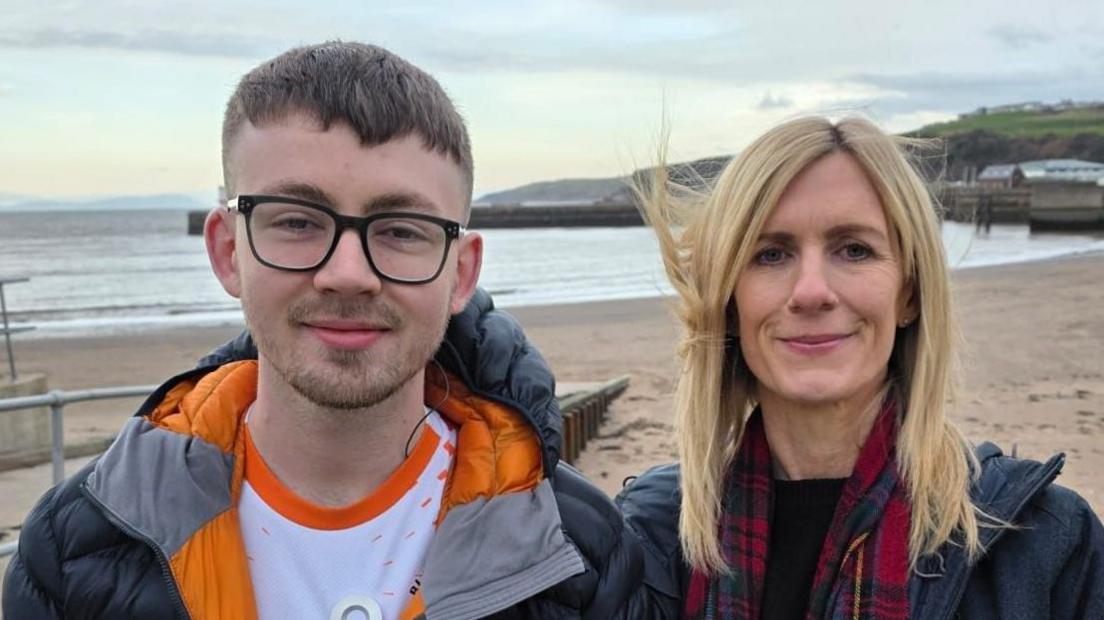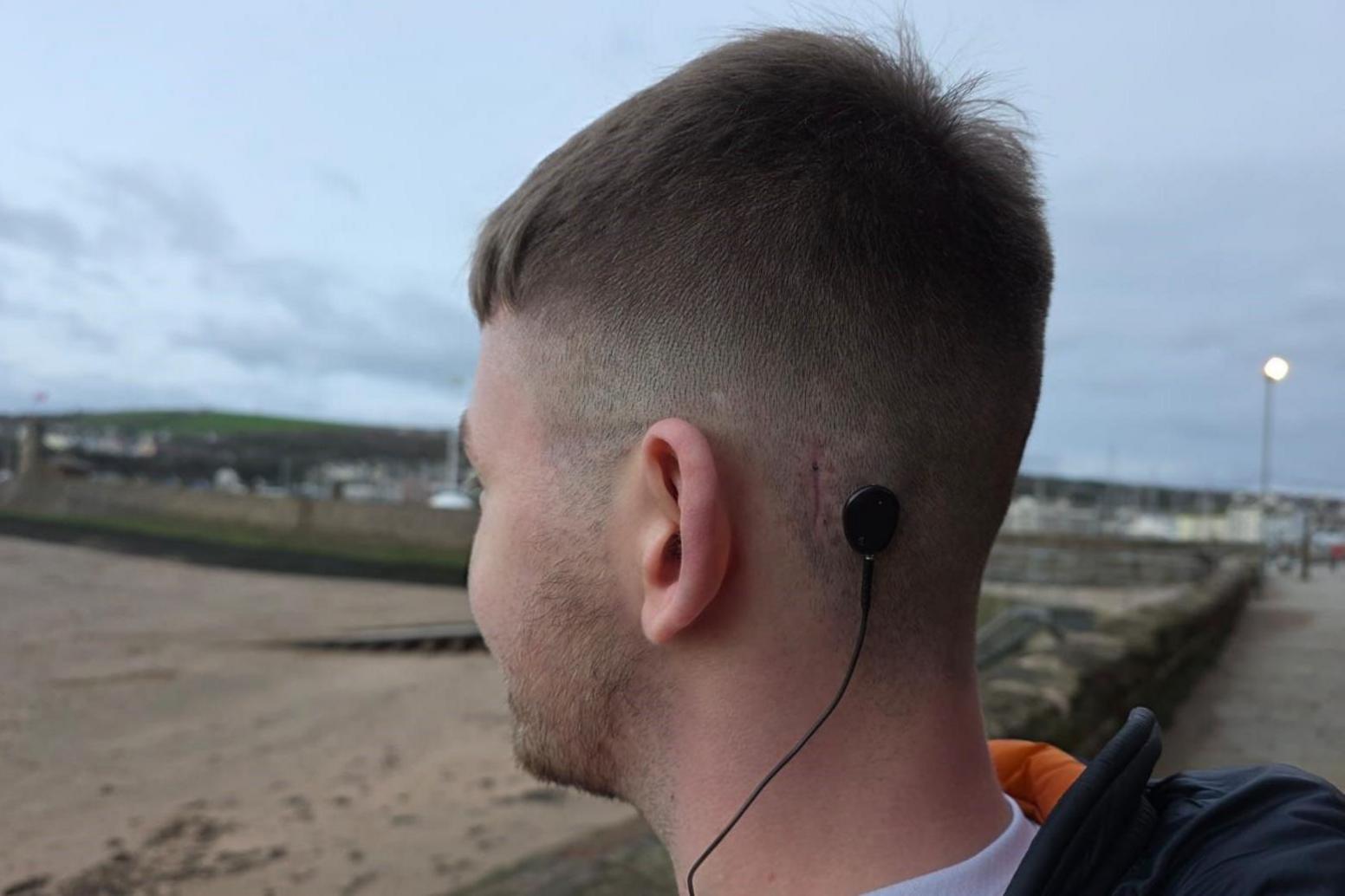Epilepsy brain implant trial gives 'bit of hope'

Adam Atkinson [pictured with his mother Vicki Brown] is taking part in a UK-wide trial
- Published
The mother of a 22-year-old who had an implant put into his brain as part of a UK-wide epilepsy trial has said the study has given them a "little bit of hope".
Adam Atkinson, from Whitehaven in Cumbria, had the implant put into his head at the Freeman Hospital in Newcastle two months ago to track the seizures he experienced.
It is part of a six-month trial to determine the effectiveness of the implant compared to more traditional methods of tracking the episodes.
Mr Atkinson's mother Vicki Brown said the implant had already discovered aspects of her son's seizures that doctors had not known about previously.
Analyse brainwaves
Dr Rhys Thomas, who is leading the part of the trial based in north-east England and Cumbria, said the implant gave doctors an "unprecedented opportunity" to monitor patients remotely.
He said the main method used to track seizures currently was to essentially get patients to monitor episodes themselves and then detail them in a diary.
Doctors can also analyse the brainwaves involved in a seizure using an EEG machine, said Dr Thomas, but this involves inducing an attack in a patient while they are in hospital attached to the monitor.
There is no guarantee, however, that someone will actually have a seizure in this way and it overlooks all the other attacks someone may experience the rest of the time, Dr Thomas added.

Adam Atkinson said he had got used to the implant in his head
Mr Atkinson has had a rare brain disease called seronegative autoimmune encephalitis since he was 15.
Ms Brown said that as part of his disease, Mr Atkinson has drug-resistant epilepsy and experiences regular seizures.
These episodes, called absent seizures, cause Mr Atkinson to go vacant for a short time and lose awareness of what is going on around him, said Ms Brown.
Since installing the implant, she said that doctors had already discovered Mr Atkinson also regularly experienced seizures in his sleep - something they had not previously known.
Meanwhile Mr Atkinson said he has become used to the implant in his head which is constantly on.
Mr Atkinson is one of six people in the North East and Cumbria taking part in the study.
Dr Thomas said the point of the trial was to determine whether the implant really was useful and if it could lead to more targeted treatment for individuals.
"Is this [the implant] an expensive toy? Is it a luxury?" he said. "Is this a technology that is worth the cost and worth investing in?"
Ms Brown said that before the trial it had just felt like there was nothing much they could do.
"This just gives you a little bit of hope," she said.
Follow BBC North East on X, external and Facebook, external and BBC Cumbria on X, external and Facebook, external and both on Nextdoor and Instagram, external.
Get in touch
Do you have a story suggestion for BBC North East & Cumbria?
Related topics
- Published3 days ago
